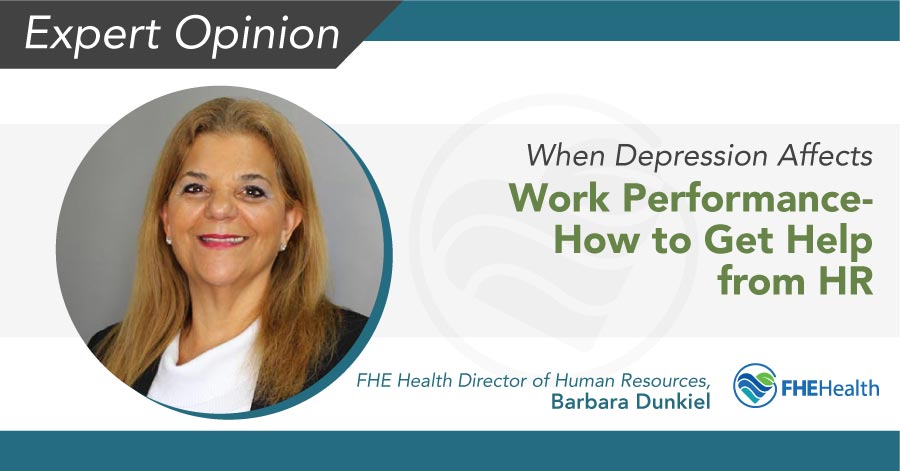
How Does Depression Affect Work Performance?
Working Americans are at a much higher risk of depression, according to newly released data reported by Forbes: Their risks of depression have risen more than 100 percent since February 2020. Meanwhile, three in four workers have experienced burnout, a joint survey by Flex Jobs and Mental Health America found. In short, mental health is a very real issue in the workplace, and in recent months, with increasing rates of mental illness, has only grown in importance.
When Depressed at Work, How Do You Get Support from Your Employer?
For those whose depression, anxiety, or other mental health symptoms are impacting their work performance, it’s not always clear how to get support from HR—or whether it’s a good idea to consult HR in the first place. (And, this reality seems to play out in the statistics. Flex Jobs-Mental Health American survey found, for example, that only one in five workers suffering from burnout said they were able to find support from their HR department; and, more than half of workers were not inclined to view their HR department as a viable source of support.)
Barbara Dunkiel is an expert on questions about employer supports for mental health. As Director of Human Resources at FHE Health, Dunkiel is a longtime professional in the field and can speak with firsthand authority about depression and peformance in the workplace—and how affected employees can find the support they need to successfully manage both their condition and their job duties. Dunkiel shared some tips and insights in a recent interview.






